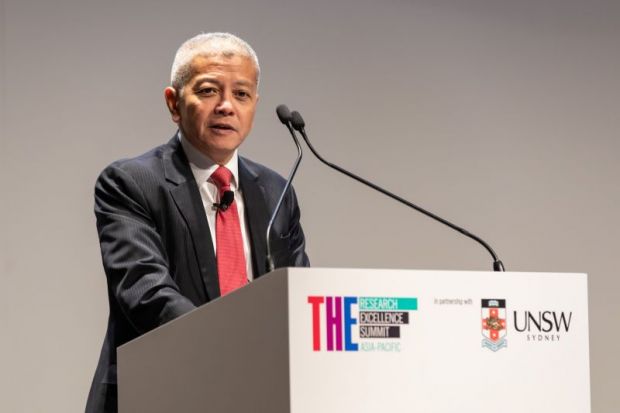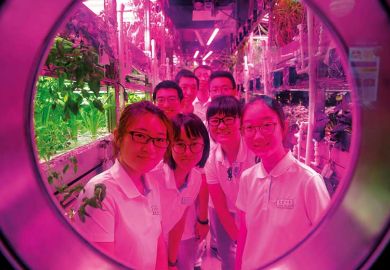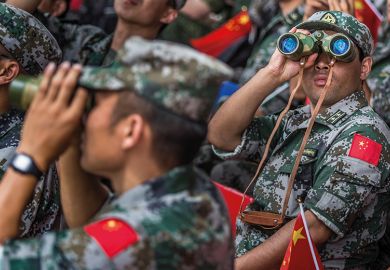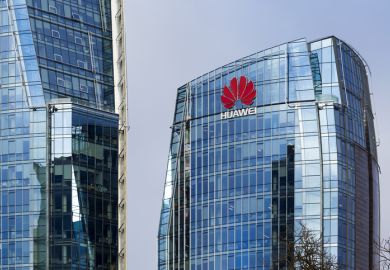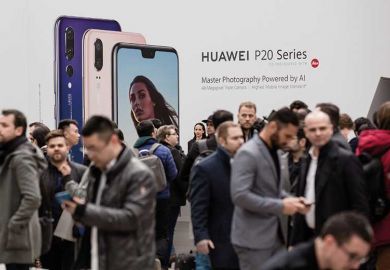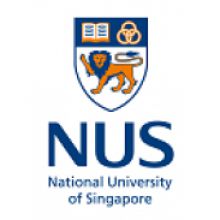The idea of research as a universal benefit has been undermined by “geostrategic competition”, and universities have a responsibility to help reverse the trend, according to Singapore economist Danny Quah.
Professor Quah, dean of the National University of Singapore’s Lee Kuan Yew School of Public Policy, said that geopolitics over the past decade had moved away from the concept that the advancement of knowledge was a global public good.
“We need to be sensitive to the belief [in] parts of the West – Donald Trump’s America, for one – that the world is now locked in a zero-sum competition for leadership,” Professor Quah told the Times Higher Education Research Excellence Summit: Asia-Pacific.
“Whether it’s leadership in technology, in 5G telecommunications, in quantum computing, in encryption, in artificial intelligence, we need to work together. We need to reassure all of the global community that when we advance technology – when Huawei pushes on 5G telecommunications – this is something that benefits the entire world.”
The summit, at the University of New South Wales, is focusing on issues around research for the public good. In a keynote address, Professor Quah said that when he had been a student and early career academic in the US in the 1980s and 1990s, the widespread assumption had been that what was good for the US economy or General Motors was also good for the world – and vice versa.
“The stars were aligned,” he said. “Incentives were such that we could all work with a clear conscience.
“We did our research. We had PhD students from everywhere in the world. We did not have to think [this] is an industrial secret; we can’t let country X share this technology. We need to go back to that way of thinking.”
Professor Quah said the future was “pregnant with possibility, both positive and negative”, and academics could not contribute by retreating to their corners. “As we in universities navigate the difficulties of engaging with different stakeholders, we need to remember that it is by building broad-based support that we do the best we can in solving the problems of the world,” he said.
“We need to engage in the public conversation. We cannot be ivory towers. We do our STEM research; we do our abstract economic work; but we need to get out there and engage in the world.”
Professor Quah acknowledged that academic freedom concerns could arise when academics from the West collaborated with colleagues from Asian universities where governments had greater oversight. But Western institutions also had their no-go areas, he insisted.
“In what people might think of as the freest of nations politically, there remain local sensitivities – certain areas we wouldn’t go into because they are offensive, they don’t take the conversation forwards, they don’t help us build better science.
“We all need to find the right trade-off between our sense of individual liberty and the things that are good for society. Each of us has to work out for ourselves what that trade-off is. We operate in a world where there are no absolutes.”
Register to continue
Why register?
- Registration is free and only takes a moment
- Once registered, you can read 3 articles a month
- Sign up for our newsletter
Subscribe
Or subscribe for unlimited access to:
- Unlimited access to news, views, insights & reviews
- Digital editions
- Digital access to THE’s university and college rankings analysis
Already registered or a current subscriber?
